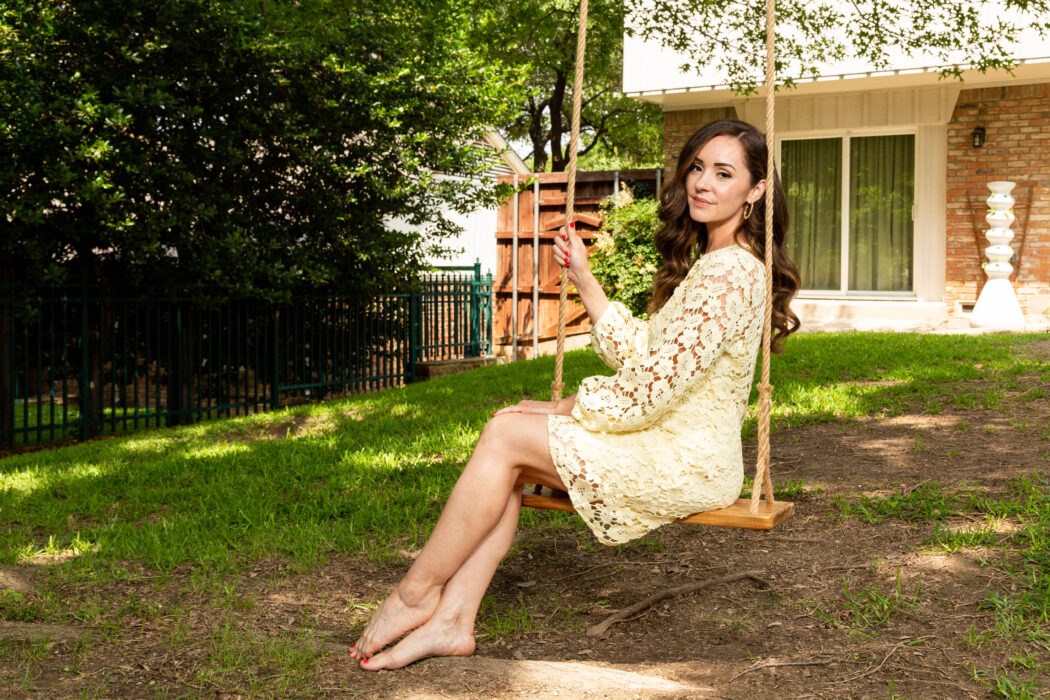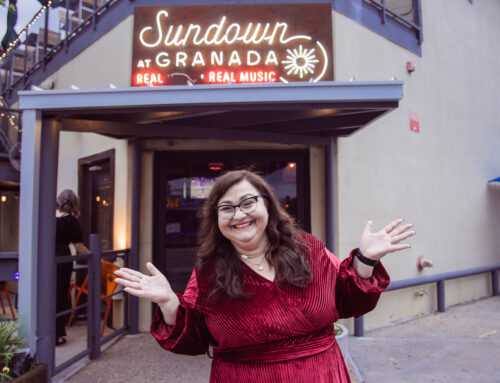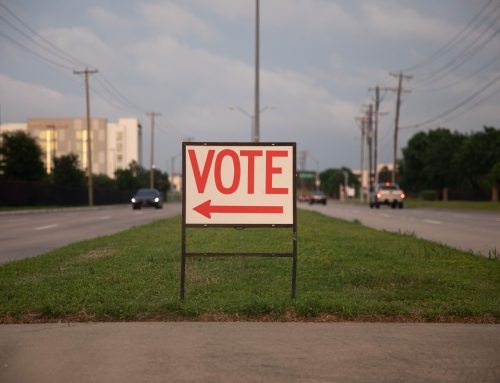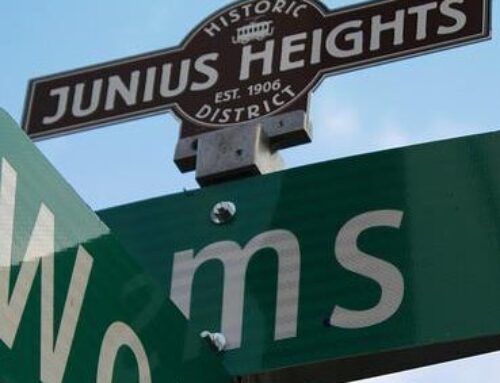
Kathryn Bazan. Photography by Yuvie Styles.
In 2020, neighborhood resident Kathryn Bazan learned the Dallas City Council would soon vote on a request to build a concrete batch plant next to a neighborhood in Zacha Junction, near the intersection of Garland Road and East Northwest Highway.
She believed the project had to be stopped.
Bazan and her neighbors, who knew nothing of zoning procedures, formed a community action group and led a grassroots campaign. They held socially distanced meetings in backyards and passed out flyers. About 40 people signed up to speak in opposition at the council meeting, drawing from organized talking points, she says.
Their efforts, which began two weeks prior to the city council vote, proved successful. And it was just the beginning of Bazan’s activism.
“We decided, we’ve got this momentum,” Bazan says. “We know some things that we didn’t know before, and we can share this information with other communities that are going through the same things.”
She invited local officials and zoning staff, state representatives and the Texas Commission on Environmental Quality to discuss how concrete batch plants affect residential areas. Then she mapped all such plants that have ever been permitted in the Dallas-Fort Worth area, showing where the plants are concentrated.
After some press attention, Bazan started receiving inquiries from people throughout Texas, asking for advice to oppose plants from being approved in their neighborhoods.
Eventually, she learned about the city’s Comprehensive Environmental & Climate Action Plan, and she contacted her council representative, Paula Blackmon, to learn more. Blackmon appointed Bazan to represent District 9 on the newly formed Environmental Commission — becoming the first female chair of an organization Bazan says is meant to facilitate information and feedback between the city and its residents.
“To be a woman in a leadership role is not easy, but I am supported and empowered by a whole group of other women on the commission who help me get the hard things done,” Bazan says.
Her appointment and work on the commission is a lifetime in the making.
It’s not enough that she has spent her career working to preserve nature. She wants to address inequity, too.
“When we’re looking at policies, the structure of our government, the way that we have historically treated community members regarding their placement next to sources of pollution, those things are really what I am most interested in dismantling,” she says.
Bazan, a master naturalist, is originally from Fort Worth but spent most of her childhood surrounded by nature in the Piney Woods region of East Texas.
While she was taking college classes, she worked in municipal governments, including the City of Irving, where she helped launch its environmental sustainability office.
She left the city after four years to work for a renewable energy company. After a year, she started at the Texas Commission on Environmental Quality, where she worked in environmental assistance. Bazan kept that job for about four years, leaving when she was pregnant with her son; she didn’t want to be exposed to contaminants on site visits.
While she was at home, she started a consulting company that has evolved, and she now helps clients with graphic and web design and strategic communications. The steps to start the consulting venture — creating a website and logo, taking photos, marketing, accounting — gave her the skills she offers clients in a variety of industries through her business, Nested Creative.
“I was able to take on clients when I wanted to and not to take clients when I didn’t want to,” Bazan says. “And I have been able to have the flexibility to do the advocacy and the volunteer work that I’m really passionate about.”
The volunteer work has been manifested through Friends of the Old Fish Hatchery, which Bazan became involved with after Oncor clear-cut the area at White Rock Lake Park in 2020.
Chairing the Environmental Commission is volunteer work, too.
The commission has already helped change the zoning code so concrete batch plants can only be in industrial manufacturing districts, and the commission added two opportunities for public input on those cases. Bazan’s proud of that accomplishment.
Another thing she’s proud of is the commission’s contribution to the city’s racial equity plan; an environmental commission subcommittee wrote four equity indicators — land use, trees, access to solar technology and food security — to be incorporated into the plan.
“I really want to fundamentally change the game in Dallas,” Bazan says. “I want to change the way that we look at land use in our communities, who gets resources, who gets consideration, who gets the opportunity to live a quality life.”





